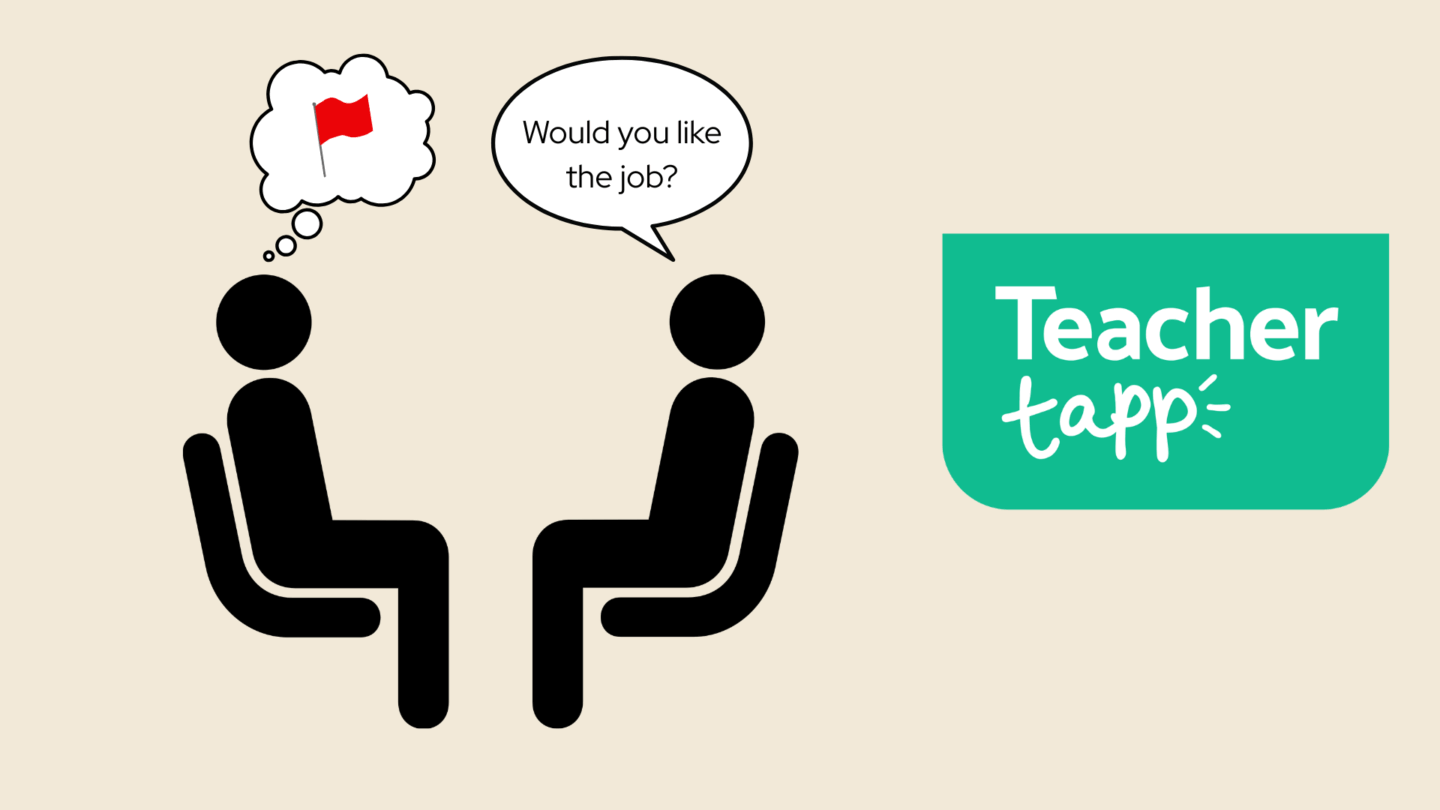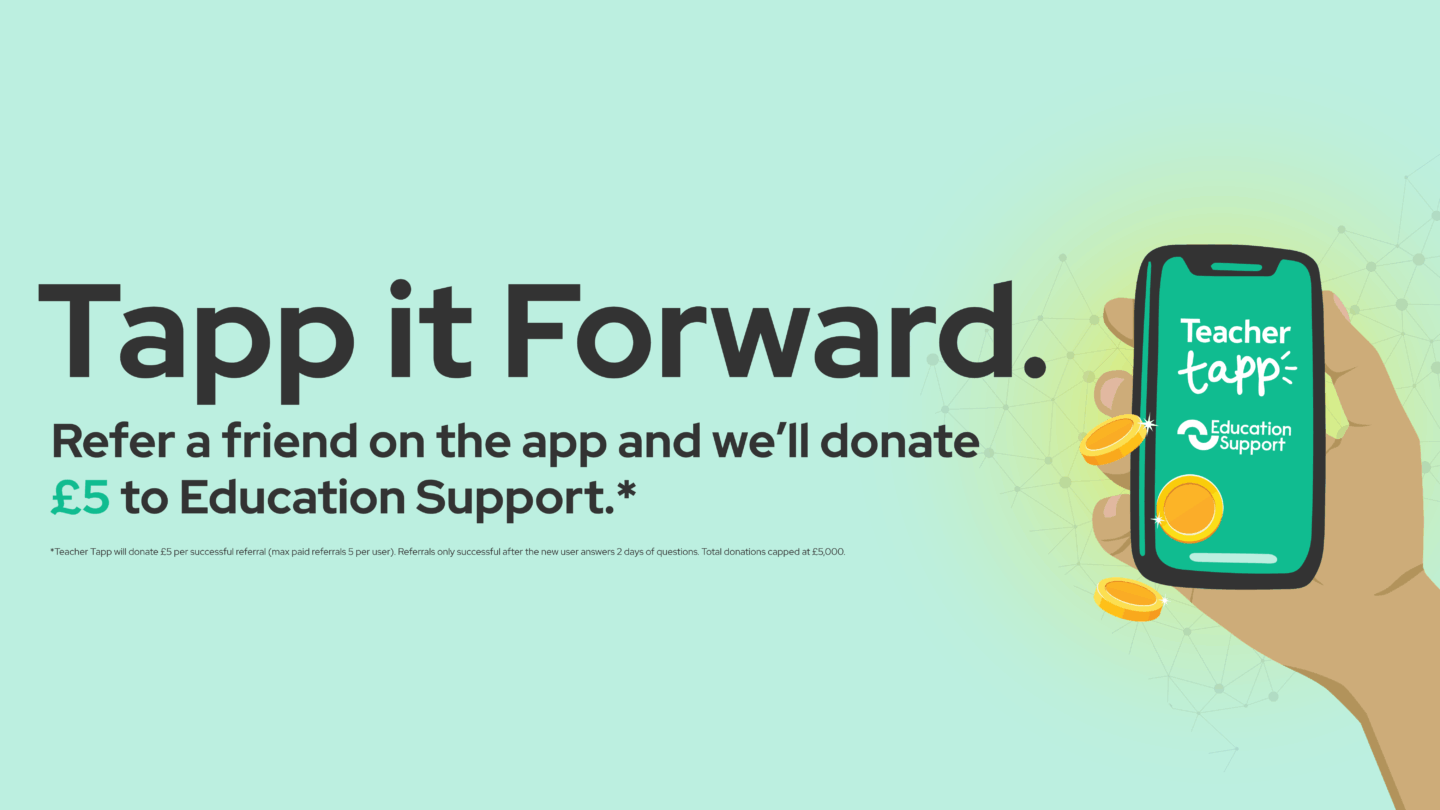Hey Tappsters!
How is everyone doing? For most of you, this is the last week before half term – just 1% are on holiday this week, and 92% are free from the 17th. A tiny few have a two-week half term (just 13 Tappers! Less than 0.2%!), this is far lower than in October when 16% had two weeks off.
This week we have launched our new prize draw – one lucky teacher will be sent an Ultimate Snack Drawer hamper, packed with Teacher Tapp chosen snacks. They can share with their fellow teachers…or keep them all to themselves! To enter you just need to Tapp five days in a row to earn a ticket. The full terms and conditions are here.

But what has Teacher Tapp learned this week? Here are the findings…
How are the ECTs?
Early Career Teachers are about to celebrate important milestones: for the year one ECTs, they are going to hit the half way point of their first year, and for year two ECTs, they hit the ‘75% complete’ marker.
But how are ECTs feeling? And how do their stresses and worries compare to more experienced teachers?
Unsurprisingly, student behaviour is the top answer for all teachers, but for ECTs it’s a far bigger concern. 66% reported student behaviour had caused stress or unhappiness, compared to 52% for ECT mentors and 51% for everybody else.
It’s also important to not forget how stressful it is preparing for lessons when teachers are new to the classroom: 39% reported this as a cause of unhappiness or stress compared to 19% of mentors and 22% for everyone else.
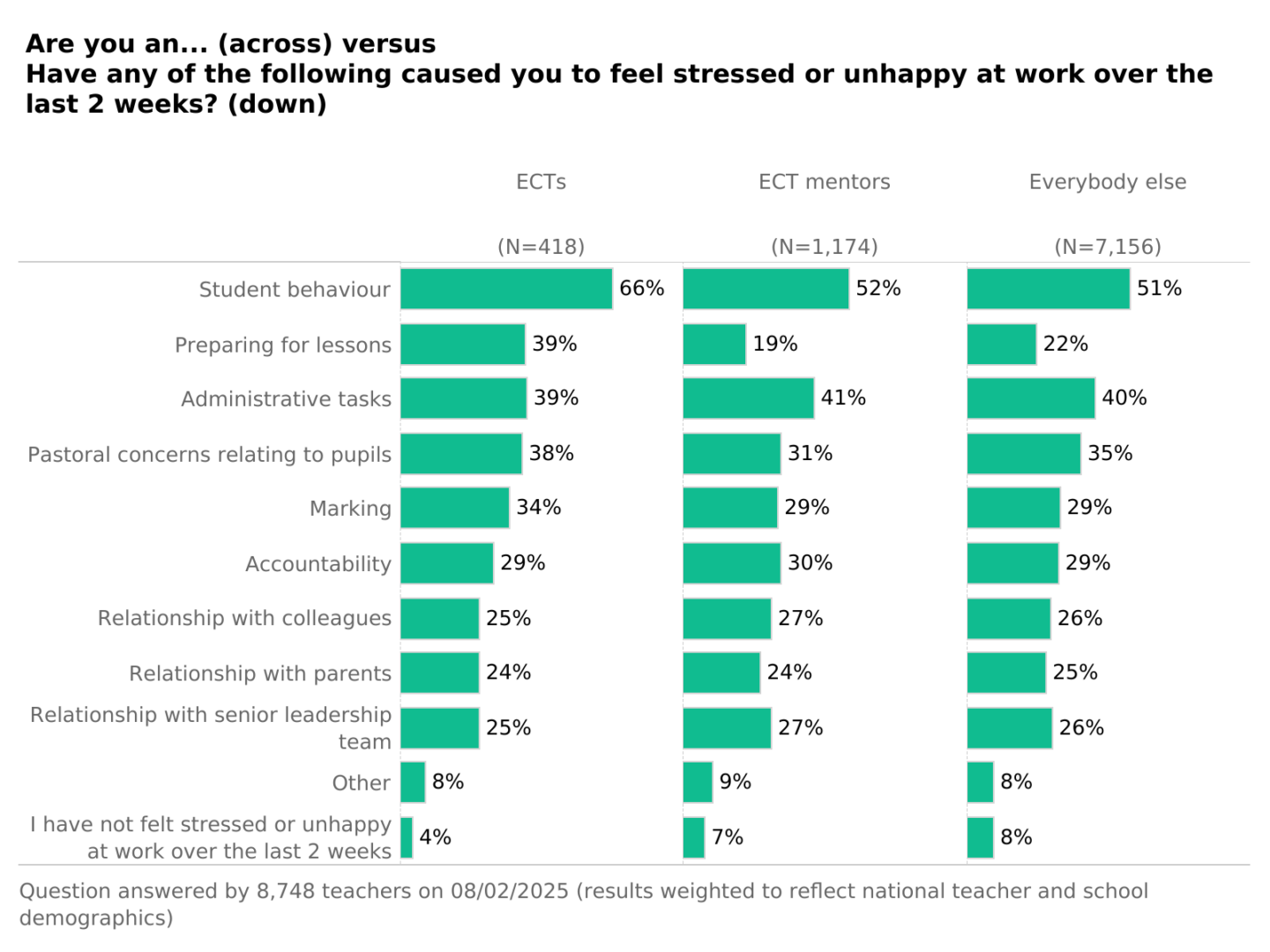
For the number of teachers in the workforce to remain stable, people need to stay in teaching, and teaching needs to be a profession people want to join. One of the reasons for the new Early Career Framework was to improve retention and reduce the number of teachers leaving in the first five years.
The good news is that ECTs are less likely to consider resigning compared to mentors or other teachers, 28% never consider resigning, compared to 15% of ECT mentors and 16% for everyone else.
However, the bad news is that 72% have been considering resigning, and 6% constantly think about it. These rates are lower when compared to ECT mentors 85% have been considering resigning, and 9% think about it constantly – this is very similar to ‘everyone else’ (84% have been considering resigning and 11% think about it constantly).
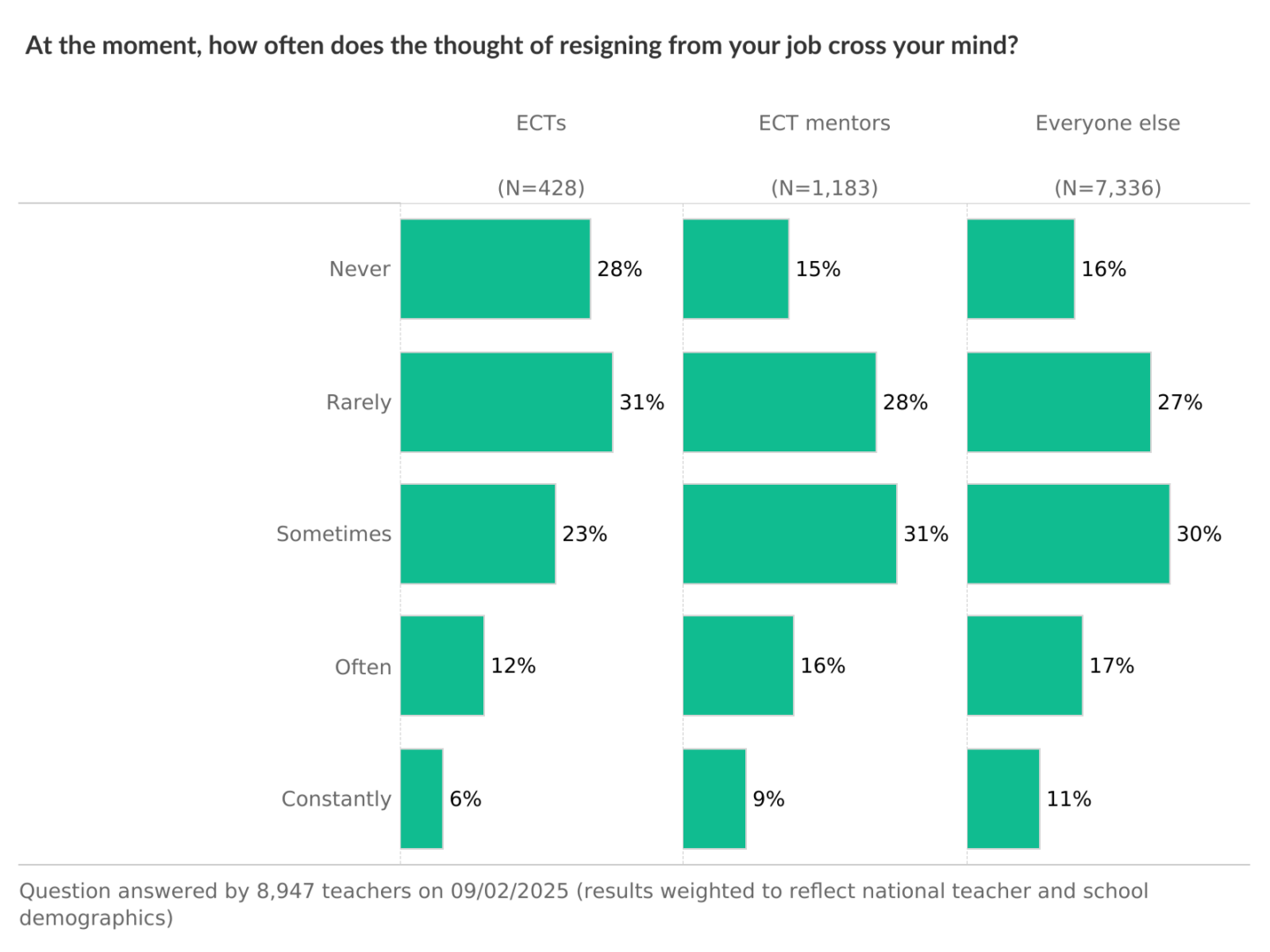
What might this mean for teacher retention in 2024-25? We will have to wait for resignation dates to see if these thoughts turn into actions – this is something that will be a focus of the Teacher Tapp and Gatsby foundation report – due out before the end of the school year.
Teachers and social media
Since 2021, Teacher Tapp has been asking about social media policies and their enforcement. It might be fair to predict that more schools would have social media policies than before, but that doesn’t appear to be the case in primary schools.
Excluding those who answered ‘I don’t know’, four years ago, 60% of teachers worked in primary schools with social media policies in place. Today, that has dropped to 51% with a social media policy.
Over in secondary schools, the number with social media policies hasn’t significantly changed over time (55% had a policy in 2021, and today, 53% have one).
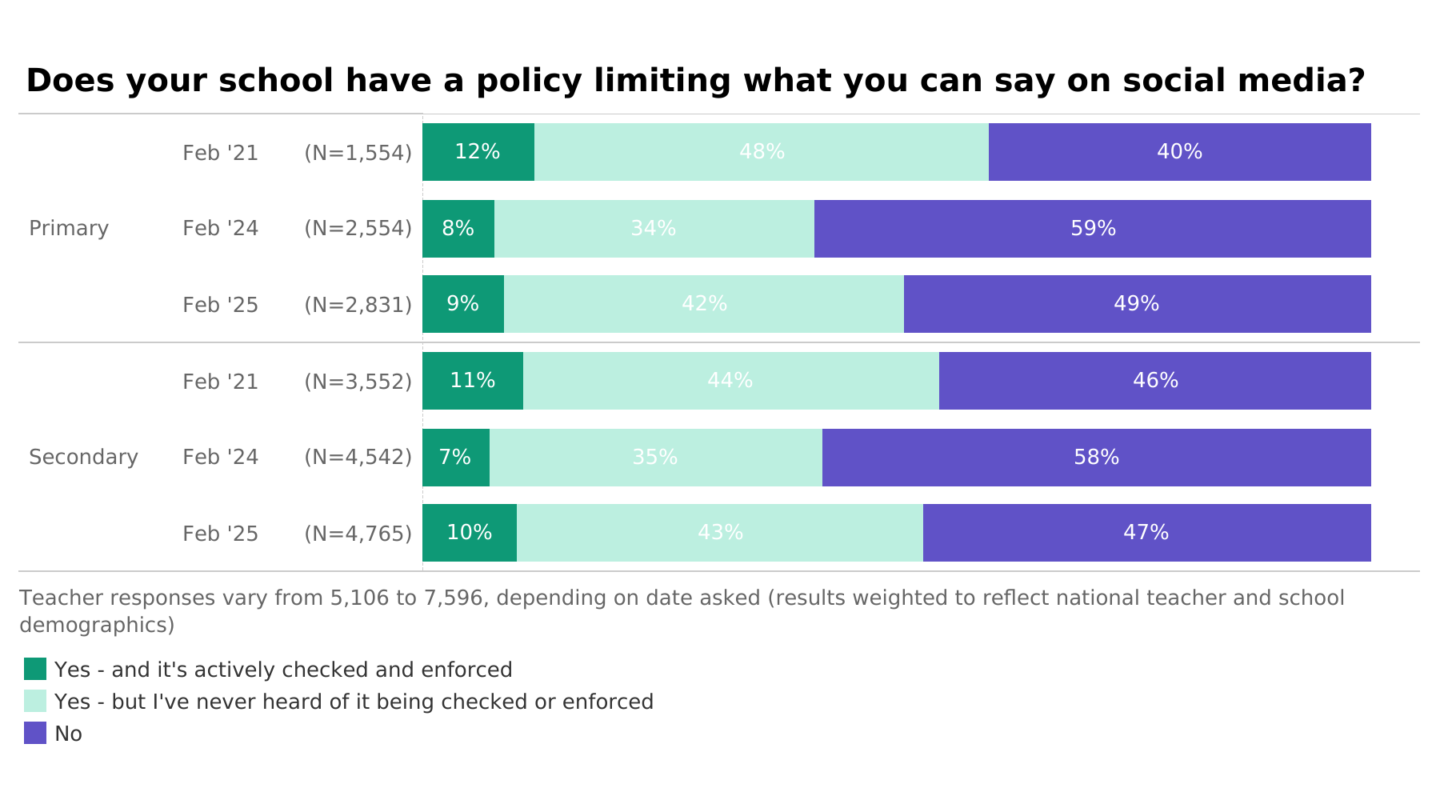
If a policy sits in a handbook, but no one reads it, is it still a policy?
What could be happening here? One answer is that schools have continued to have social media policies, but classroom teachers aren’t aware of them.
Looking at just the responses by headteachers and classroom teachers, there is a stark difference between what headteachers say they have in their school vs what classroom teachers report.
📵 51% of primary school heads have a social media policy compared to 37% of classroom teachers.
📵 47% of secondary school heads have a social media policy compared to 36% of classroom teachers.
Therefore it would make sense that there hasn’t been a drop in the number of schools holding policies on social media, but there has been a drop in the number of teachers who have been made aware of it.
Calling in sick
Many teachers drag themselves to work as the alternative of calling in, setting work, and then dealing with the aftermath of being off sick is worse than struggling through the day feeling less than 100%.
But what do schools expect teachers to do when they call in sick?
The answer largely depends on whether you are in a primary or secondary school.
The smaller size of most primary schools explains why line managers are the first port of call as opposed to an absence line (80% call a line manager, just 29% call an absence line). Whereas in secondaries most are calling an absence line (91%) and a hefty number are ringing their line manager too (61%).
Spare a thought for those poor teachers expected to call BOTH lines – 52% of secondary teachers and 10% of primary!
Sending in coverwork is also more common in secondary schools compared to primary (83% vs 41%). But in primary schools you’re far more likely to be asked to call to let the school know if you will be absent again the next day (59% vs 13%).
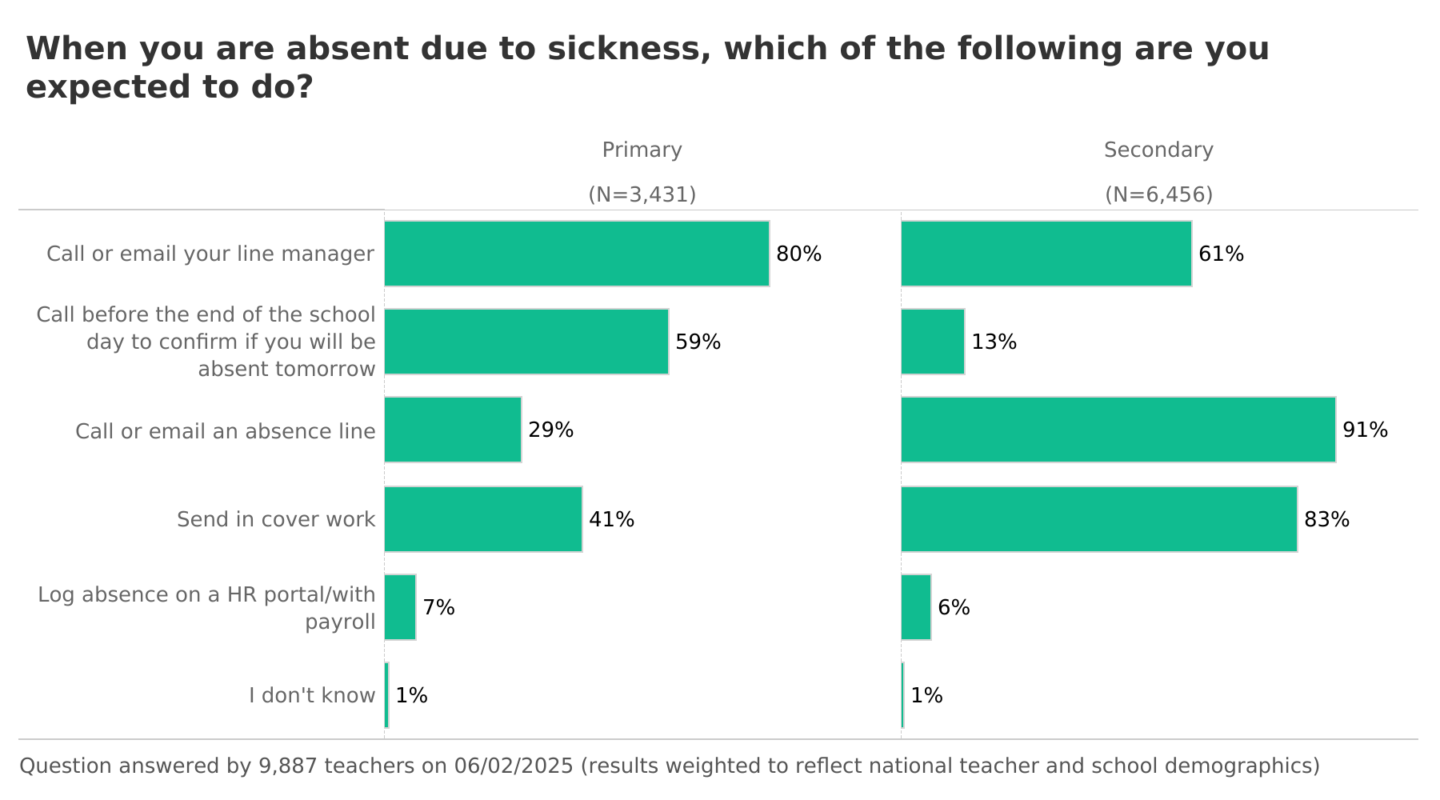
Are more people unwell?
Are people more likely to be off sick now compared to previous years? Apparently not – compared to the last three Februaries, absence rates have remained the same AND even when looking at the time before the pandemic but in different months, the rate was the same 8% had taken time off in the previous week.
Are some groups more likely to be absent than others? Not- when checking if parents of children, or teachers of specific subjects, or teachers in private schools, or in areas of high deprivation, or even in different parts of the country – there was no statistically significant change.
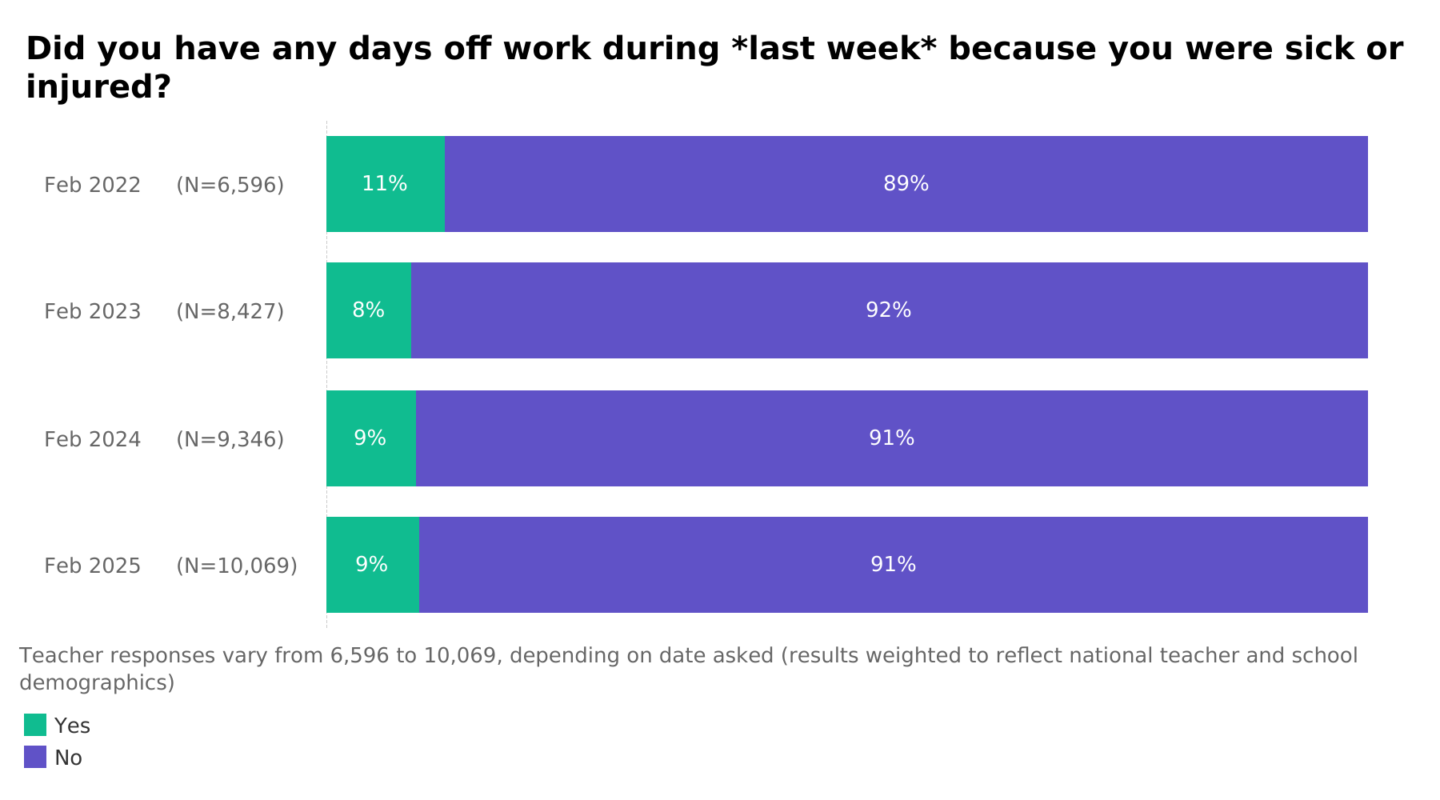
Daily Reads
This week our most-read piece was all about homework and the questions we need to ask ourselves.
Have you seen a great blog you think would make a great daily read? Let us know by emailing england@teachertapp.co.uk and we will check it out!



